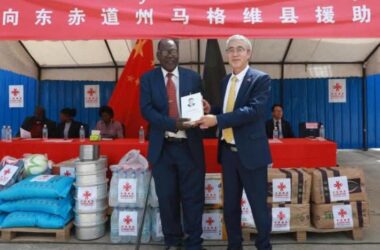By Ijoo Bosco
Communities in Magwi County have refused to endorse a World Bank-funded transboundary project in areas along South Sudan-Uganda borders, alleging a lack of prior consultation.
This week, National Ministry of Water Resources and Irrigation hosted a one-day stakeholder consultation on the Transboundary Integrated Flood Risk Management Plan and assessment of the Unyama/Ame River catchment in Torit, Eastern Equatoria State.
The consultative workshop aimed to engage stakeholders throughout the project cycle, introduce the initiative, and outline its expected benefits for beneficiaries in South Sudan.
During the daylong engagement, participants discussed the implementation modalities of the Limur/Nyimur multi-purpose project and the cooperation of stakeholders in the Unyama/Ame River catchment.
However, Magwi County stakeholders’ representative, Taban Oliver William, stated that after extensive discussions in Torit, they resolved not to recommend any feasibility studies or implementation of the planned project along the Magwi border with Uganda unless grassroots communities are consulted.
Mr. Taban emphasized that they would stand with the community’s final decision regarding the implementation of the Limur and Unyama multi-purpose water project, contingent upon local communities recognizing both the benefits and risks to their ancestral land in Magwi County.
He stressed that the perspective of local communities regarding the project’s implementation will significantly influence their final decision.
“We have been discussing critical issues that have attracted people from Kigali, Uganda, and Juba. We agreed that the consultative meetings should continue, but granting approval for feasibility studies is not our responsibility. The final decision rests with the community. If you do not engage with them, we cannot make decisions on their behalf,” said Taban Oliver.
Undersecretary in the Ministry of Water Resources and Irrigation, Peter Mahal Dhiel Akat, commended the Magwi County stakeholders, which include state members of parliament, women, youth, and civil society groups, for their commitment to contributing their views on this vital development project.
Mahal acknowledged the stakeholders’ decision in Torit to seek final approval from local communities before proceeding with feasibility studies or implementation.
“The consultation must continue with the grassroots, as they are directly affected by these decisions. The outcome of today’s consultation is productive and fruitful. We appreciate the input from the national Ministry of Water Resources and Irrigation and the Nile Basin organizations,” he added.
Eastern Equatoria State Minister of Housing, Land, and Public Utilities, Luka Charles Jankarlo, supported the Magwi County lawmakers’ directive for the visiting national ministry representatives to engage with local communities regarding the planned project.
Minister Luka encouraged the delegation led by the Undersecretary to listen to the concerns of area representatives, emphasizing that decisions cannot be made unilaterally but must reflect the community’s voice.
He noted that pressuring community members to accept the project could lead to resentment.
“I truly appreciate the national government’s initiative to benefit the people of Eastern Equatoria State. While we value all projects coming to the state, today’s consultative meeting is particularly important. The area MPs represent their constituents, and they cannot decide on their own. We must listen carefully to the community, as their resolution will guide our actions. This is a long-term plan; if they reject it now, it may not be forever. In the future, if other issues are resolved, the project may still be implemented because we understand that water is vital for reducing flood risks,” said Charles.
The Nyimur multi-purpose dam, along with this year’s Unyama water catchment project, follows the suspension of the project due to the 2013 conflict in South Sudan.
Donors are now urging both countries to reach an agreement on the project’s implementation.




